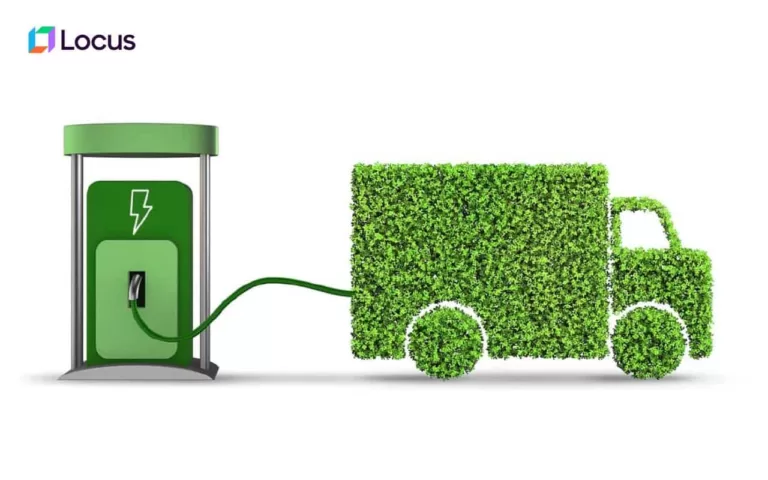Last Mile Delivery Optimization, Route Optimization
Optimizing Last-Mile Fulfillment for FMCG Businesses in the Middle East
Sep 16, 2020
6 mins read

In 2019, Bain & Co. predicted that the retail industry in the Middle East and North Africa (MENA) is on the verge of a pivotal shift. “E-commerce is becoming a reality,” the management consulting company stated, “reinventing consumers’ path to purchase, forming new customer experiences, disrupting business models, and creating growth opportunities for large and small retailers as well as for a new generation of pure E-commerce players.”
Historically, consumer goods shopping was restricted to in-store visits to supermarkets or malls in the Middle East. Strong reliance on face-to-face shopping and loyalty for cash transactions are the primary reasons why MENA has been relatively slow in adopting E-commerce. But, these are unprecedented times, and the shopping dynamics in the region have begun to change. The COVID-19 pandemic has pushed the traditional Middle Eastern shoppers to explore online buying options, and the conventional FMCG sellers to expand their offerings beyond in-store sales.
Omnichannel is the Way Forward for FMCG businesses
Online shopping of essentials, groceries, consumer goods, food, and beverages is the new normal now, and businesses across FMCG, retail, and grocery markets in the Middle East have come to realize that it’s high time to adopt omnichannel selling too. Supermarkets and grocers across the region are now offering their products for sale on digital platforms. Some have introduced on-demand delivery services to cater to home-stuck consumers’ rising demands in groceries and prepared meals delivery.
Locus’ Guide To Omnichannel Fulfilment. Download WhitePaper Now!
Furthermore, a number of household shopping apps have come up in the MENA region, allowing customers to place home delivery orders of groceries and other consumer essential goods using smartphones. Food delivery platforms like Deliveroo and Otlob in Egypt and Careem NOW in Saudi Arabia have also started offering groceries on their platforms alongside their roster of meals from restaurants. Also, large-scale consumer goods brands are eyeing on increasing revenues by introducing Direct-to-Consumer selling options.
Coronavirus’s impact can clearly be felt in the way consumer shopping behavior has changed across the region, and it looks like the trends in online shopping, and convenient, contactless home delivery of consumer goods will continue to prevail, even in the future.
There is obviously huge pressure on FMCG retailers and etailers to deliver goods faster than competitors while maintaining hygiene and safety protocols. This indicates that greater emphasis is now on ensuring smooth and fast last-mile fulfillment to the customers, in order to offer a positive shopping experience and maintain brand loyalty. As its name suggests, fast-moving consumer goods should actually ‘move fast’ and reach the end customer in time, without delivery delays or last-mile hiccups.
Challenges in Consumer Goods Distribution
However, the MENA region comes with its own set of geographical and logistical challenges that must be overcome to establish efficient last-mile deliveries.
Address verification and mapping is a common problem faced by logistics planners. Poorly written addresses and a mix of Arabic and English text make it difficult to locate addresses precisely on a map. This coupled with high-density on-demand orders, often causes inaccuracy in distribution and takes up the precious time of delivery agents in locating addresses.
Another major logistical issue in some parts of Middle East is route restriction. For instance, in Abu Dhabi, trucks having a capacity greater than 6 tonnes are not allowed to travel on certain roads. Additionally, there are some routes, mostly major highways, where these trucks are not allowed to travel between say 6:30 am to 9:00 am and 3:00 pm to 6:00 pm.

Many FMCG brands and supermarkets still rely on pen-and-paper processes for planning daily deliveries and sorting orders. This leads to further inefficiencies and gaps in last-mile fulfillment. Companies also struggle with delivery route restrictions, which lead to delays in planned delivery timings. Across the region, there is also a lack of supply chain visibility and real-time monitoring of on-ground operations, making logistics management even more complicated.
Download Ebook on “The New Fulfillment Models in Logistics and How these will change the last-mile game for Brands“
Locus in MENA’s FMCG Supply Chain
Locus provides a range of AI and Machine Learning-driven logistics solutions to improve last-mile operations for FMCG enterprises. Locus solutions improve decision making at operational, tactical, and strategic levels, bringing in efficiency, consistency, and transparency in the supply chain.
Accurate Mapping of Addresses
Locus’ proprietary geocoder is capable of converting even the fuzziest and poorly written addresses into precise geographical coordinates on a map. Logistics planners can map huge lists of locations accurately within no time, irrespective of the quality of addresses. Automating address location reduces logistics planning time significantly, improves rider productivity by increasing the number of deliveries per rider, and improves First Attempt Delivery Rates.
Want to verify addresses and validate geocodes? Check out Locus AccuPin!
Route Planning and Dispatch Optimization
Consumer goods enterprises and E-commerce retailers deal with hundreds of on-demand orders in a day. It is important to plan delivery routes efficiently while minimizing costs and saving planning time. Locus’ route optimization solution automates route planning and dispatch processes and provides automated route recommendations based on the type of vehicle, vehicle capacity, traffic, stop duration, delivery time, rider preference, and several other constraints.
The solution also considers a number of route restrictions such as traffic congestion, weight, and volumetric capacities, distance, time slots, skills, locality familiarity, operating hours, and fairness among salesmen. Locus also takes specific route restriction factors into consideration while planning delivery routes, allowing businesses to skip restricted roads at specified timings for faster and more efficient delivery.
Locus Route Optimization software is also capable of dynamic re-routing and territory-based route planning, helping in managing on-demand orders optimally. Route Optimization allows companies to reduce the number of vehicles needed and also achieve a reduction in distance traveled for all the vehicles.
Greater Last-Mile Visibility
Managing fleet in real-time is an essential part of logistics management for FMCG enterprises in order to ensure timely deliveries and avoid unnecessary delays. Locus offers an interactive Cloud-based fleet tracking solution to businesses with features like live dashboard views, predictive alerts, and real-time on-ground visibility for logistics managers. It allows them to be on top of delivery operations, take necessary actions in case of deviation from planned routes, and keep track of worker productivity too. The live-view tracking feature offers order status and Expected Time of Arrival (ETA) to customers, enabling them to track orders in real-time and be aware of who is handling their order.
Supply chain and logistics technology such as route optimization, dispatch automation, and real-time fleet management software are transforming last-mile operations for supply chain businesses all over the world. It is high time for businesses in the Middle East to adopt tech to support the last-mile distribution of consumer goods and elevate the end customer experience.
Get in touch with our experts for a free tour of our AI-based logistics solutions and optimize your FMCG supply chain now.

Sources:
Related Tags:

News
Walmart-owned Flipkart Pledges 100% Transition to Evs by 2030
Walmart-owned Flipkart pledges 100% transition to EVs by 2030 by partnering with Climate Group's global electric mobility initiative, EV100.
Read more
Last Mile Delivery Optimization
COVID-19 Last-Mile Logistics Roadblocks: Preparing for a Better Future
Like it or not, we’re sailing through one of the worst years in the history of mankind. The Coronavirus pandemic has been a true test of our adaptability, resilience, and the ability to bounce back— as humans, as economies, and as businesses. In his interview with Yahoo Finance during the early stages of the pandemic, […]
Read moreMOST POPULAR
EDITOR’S PICKS
SUBSCRIBE TO OUR NEWSLETTER
Stay up to date with the latest marketing, sales, and service tips and news


Optimizing Last-Mile Fulfillment for FMCG Businesses in the Middle East